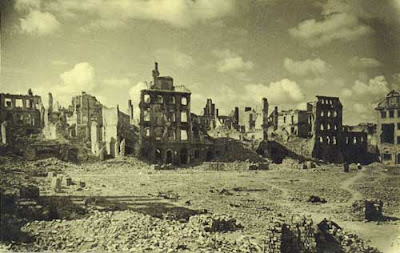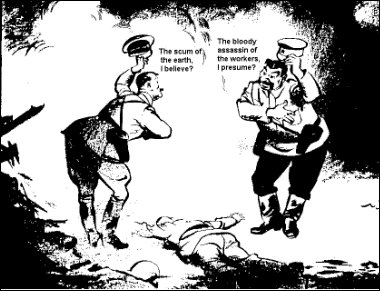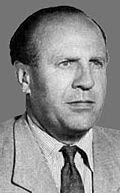It’s been a while since my last Book Club post. Last month’s visit to Warsaw and Krakow made me (temporarily) set aside my medieval queens in order to read two books about Polish Jews and the Holocaust: Sala’s Gift and The Lost.
I had read a lot about the Holocaust in the past in part because my family hails from various Eastern European countries, which they sometimes achieved without moving house. For instance, my grandfather’s cousin, Max, was born in Czernowitz, Austria-Hungary. After World War I, the city became part of Romania and was renamed Cernautzi, though the German-speaking inhabitants stuck with “Czernowitz.” Then, during World War II, the city was taken over by the Soviet Union and called Cernowitzy. Now it’s called Chernivtsi and located in Ukraine.
Max himself served in the Romanian army before being sent to a German-run slave camp in Ukraine during World War II. When the camp was liberated by the Soviets, he was drafted into the Soviet army. After the war, he sensibly decided, “To hell with this place! I’m moving to America!” But the U.S. wouldn’t let him in and the USSR wouldn’t let him out, so he smuggled himself out to Italy, made a pit stop in Crete and ultimately landed in Canada where he became a citizen. Eventually, he made it to New York. Now, at 94, Max is still a gorgeous international jet-setter, zipping between New York and Australia with his sex-ay gal pal Lola — whom he knew back when they were kids in Czernowitz, Cernautzi, Cernowitzy and/or Chernivtsi. Jebus! Look what you have to go through to win the heart of the girl next door. Also, I’m probably going to get in trouble for giving away his age. I swear he looks like he’s 84, y’all.
Anyway, my recent reading came about because World War II makes itself felt so vividly in both Warsaw and Krakow, and not only because Krakow is a short distance away from Auschwitz, the most notorious Nazi concentration camp. The war-damaged 16th century synagogues in Krakow’s old Jewish district of Kasimierz stand as a testament to a vanished population. (At the start of WWII, there were more than 60,000 Jews in Krakow. In 2005, there were 157.) But it was in Warsaw where the war felt most tangible to me. A number of people, including my gorgeous Polish friend Monika, had told me to concentrate on touring pretty, historic Krakow — that Warsaw was too new, too ugly, too Communist. The problem is that old Warsaw was systematically destroyed by the Germans in 1944. While some of the original architecture was recreated after the war, painstakingly copied from old pictures of the city, the medieval-looking buildings are really just decades old.
Knowing that all the “old” buildings were new — as well as seeing the ruins and empty spaces that the Communists couldn’t afford to do anything with and passing by the occasional bullet-pocked building facade — made me unable to forget the war for even a moment.
Warsaw’s destruction in 1944 was the direct result of Poland’s victimization during WWII. The Allied invasion of Normandy — D-Day — took place on June 6 of that year, with the objective of freeing Europe from Nazi occupation. Made hopeful by Allied progress, including the approach of the Soviet Union’s army, the poorly armed Polish resistance rose up against the German occupiers that August. (This “Warsaw Uprising” is not the same as the “Warsaw Ghetto Uprising,” which took place in 1943.) However, the Soviets deliberately halted a few miles outside the city and refused to provide any support. The resistance army lost to the Germans: more than 15,000 resistance fighters and 200,000 civilians were killed in Warsaw during the uprising. So many people died that bodies were just being buried where they fell, if they were buried at all. Then, after the fighting, the Germans evicted all remaining civilians and used explosives and fire to destroy the city, in accordance with Hitler’s decree that “Warsaw has to be pacified, that is, razed to the ground” and SS Chief Heinrich Himmler’s command that “No stone can remain standing.” The Germans were careful to identify and destroy monuments and historical buildings that were especially important to Polish culture.
So, why did the Soviets sit on their asses and let their enemies, the Germans, destroy Warsaw? Because the USSR wanted Poland for itself, and a successful, uppity Polish army would never politely turn over its country to a bunch of Communists. In fact, the Soviets wanted Poland so badly that in 1939, the USSR was acting all buddy-buddy with Germany and signing a non-aggression pact. Evil dictators Adolph Hitler (Germany) and Joseph Stalin (Soviet Union) basically said to each other, “Hey, you’re evil. I’m evil. We have a lot in common so we shouldn’t fight. Let’s just split up a big chunk of Europe between us.”
They agreed that each would get a piece of Poland. Germany would also get Lithuania, while Russia would take Estonia, Finland, Latvia and a bit of Romania. Obviously, no one asked the countries in question if this plan was cool with them. If someone had said to the Poles, “Hey, is this cool?”, they would have been like, “Um, no!”
As it turned out, there’s no honor among thieves. Hitler out-eviled Stalin by attacking the USSR in 1941, so Stalin decided Germany wasn’t so great after all and joined the U.S. and U.K. to fight the Nazis.
 Stalin (left) with new friends Franklin D. Roosevelt and Winston Churchill in 1943.
Stalin (left) with new friends Franklin D. Roosevelt and Winston Churchill in 1943.He looks smirky, doesn’t he?
But becoming anti-Nazi didn’t improve Stalin’s personality. He was still evil and still wanted Poland for himself, and that’s why his army stood by and watched while the Germans — who hadn’t faced the fact that they were losing the war — took down the Polish resistance. After the Germans got rid of the independent Poles, and the Allies got rid of the Germans, the Communists were able to snatch up whatever was left of poor Poland.
So, as you see, Poland was treated craptastically by both sides. The Polish people suffered terribly. I’ve been begging Monika to write down the story of her grandmother’s remarkable escape from Warsaw with a 9-month-old and a two-year-old in tow, so I won’t tell it here, but trust me, it’s hair-raising. Also, if you’re ever in Warsaw, check out the stellar Warsaw Rising Museum, which gives you a sense of what it was like during those desperate times.
One thing you won’t get a sense of in Poland — not at the Warsaw Rising Museum or even Auschwitz — is the history of Polish anti-Semitism. Except at the Jewish history museums, anti-Semitism is treated as something that the Nazis brought with them. There’s an emphasis on Polish victimhood and bravery. Much is made of the Righteous, who range from people who did great things, like risking their lives to hide Jews, to people who maybe passed along a letter for a Jew. (At Auschwitz, MrB studied a display about the Righteous and remarked, “You didn’t have to do much to get your name up here.”) The big local hero is Oskar Schindler, the subject of the movie Schindler’s List. Schindler was a rich Nazi Party member who saved many Jews from the gas chambers by employing them in his Polish factories. (One of the factories was supposed to be producing ammunition for the Germans — Schindler made sure none of the ammunition worked.) Schindler spent his entire fortune on bribes he had to pay to save Jews and on caring for the Jews he saved. Poland has every reason to be proud of Schindler — except he wasn’t Polish. His actions took place in Poland, but Schindler was an ethnic German, born in Austria-Hungary, like my grandfather’s cousin Max. Even now, after the borders were redrawn, Schindler’s birthplace is part of the Czech Republic, not Poland.
It is true beyond a doubt that anti-Semitism in Poland did NOT result solely from the German occupation. Here are just three examples, from before, during and after WWII.
- March 1936. Violence against Jews erupted in the town of Przytyk, Poland, and spreads to surrounding areas. Close to 80 Jews were killed and 200 wounded.
- July 1941. In and around the town of Jedwabne, Poland, Polish citizens massacred local Jews (but they said the Germans “inspired” them to do it). Hundreds were burned alive. Mass graves are thought to contain as many as 1600 bodies.
- July 1946. The saddest story of all. After the war, local residents of Kielce, Poland, attacked Jewish survivors of the Holocaust, killing more than 40 of them and causing many other survivors who had returned home to leave Eastern Europe permanently.
Obviously not all Poles, or even the majority of Poles, were anti-Semitic, but there was a level of anti-Semitism tolerated in the culture. I found the denial of this to be so pervasive that I was grateful when the Auschwitz tour guide acknowledged that 90% of the people sent to the gas chambers there were Jewish, even though she spent 90% of her time talking about the gentile Polish victims. She was very careful: After each of the many stories she told about Poles in Auschwitz, she would say, “But of course 90% of the victims were Jews.” Believe it or not, that spin is a huge improvement over what the Communists used to say. My gorgeous Polish friend Monika, who grew up under Communism, told me that in school she was taught that the Auschwitz victims were ALL Poles. This apparently was supposed to be a nice, brotherly sort of thing, to be interpreted as “We are all comrades and all Poles. Religion doesn’t matter.” But that’s completely inaccurate. Auschwitz’s victims weren’t all Poles. Victims were being transported to Auschwitz from all over Europe — from as far away as Norway and Greece. Thousands of Hungarian Jews were murdered in 1944 alone.
All of this — the feeling that WWII was so close, the awareness of the suffering of the Poles, the denial of anti-Semitism — is what led me to pick up the two books I mentioned at the start of this post. It’s a long post, isn’t it? That’s why I’m going to be a big tease and save my thoughts about those and other books for next Thursday. What?! Stop complaining. You should be happy I’m not making you read any more today. Go browse the Net-a-Porter sale or something. Let me know if that Miu Miu top I like is still there.
UPDATED TO ADD: Thanks to gorgeous blogger CDP for bringing up Irena Sendler, who truly deserves to be called Righteous for smuggling 2,500 Jewish children out of the Warsaw Ghetto.






Wendy..history lessons are always a lot more ‘interesting’ when I see a person or person(s) behind them. Wish my lecturers knew this secret way before. How intriguing.
Thank you so much for writing up a storm. I can’t wait for the next one. (i’m sure you have quite a few up on the sleeves)
‘craptastically’ – i love this word you created. will have to think of an occasion .. shouldn’t be too hard.
I love Max’s story!
Songy, Max has had quite a life! The story of how he and Lola got together is a good one too, I’m just trying to confirm all the details. It took about 25 emails and a call to Australia to get his basic info figured out!
It seems like so much “history” isn’t shared in the classrooms. Well, at least not in my day. We got a pretty one-dimensional view of history, and nobody seemed to be questioning what they were hearing.
I appreciate that you offer a perspective that I couldn’t normally get.
I also value getting the story from someone who lived through the events, whenever possible. I would love to hear more about Max.
There’s a guy at my gym who survived the Holocaust, and he’s actually willing to talk about it. My old school friend’s parents escaped Hungary during the war, and that tale was harrowing. But they were willing to talk about it, too.
A personal narrative is so much more effective and compelling than an account in a decades-old history book.
I’m going to come back and read this properly at a time when I don’t have a two year old pulling my hair and pleading to go to the park – my husband has been working on a screenplay adaptation about a Holocaust survivor (in Lithuania though), it is fascinating to hear from those who were there.
PS. I love those lady harlequins too.
Thanks for a wonderful post. In my last year of university, I took a literature course that focused exclusively on the Holocaust. It was heart-wrenching stuff, and your stories about Max and the uniquely Polish perspective made me think of some of the pieces I read for that course. Have you read Maus? There’s a glimmering of Polish anti-Semitism in there.
Hi Wendy-thanks for writing such an informative and thought provoking post. Maxs story is such a compelling read-I would love to hear more about his stories. I also didn’t know about the level of atrocities faced by Poland and also how much anti semitism that was really out there. Thank goodness for Schindler, too.
What an incredible post, Wendy. You have a way of making history come to life, and your personal perspective and sprinkling of irreverent humor make it feel real in a way that a history book just can’t do. As a kid, I was obsessed with reading as many books as possible about the Holocaust (what a fun, sunny child I was!), in part because I felt this heartbreaking sympathy for all of the children who endured it. That photo of the Hungarian children encapsulates for me the bitter tragedy and calculated evil of the Holocaust. Thank you for writing this.
Oh, and the Harlequin tops are still there, but they only have a few sizes left.
I was quite delighted to hear Max’s story, he sounds like the most interesting and delightful gentleman. Thank you for this post. There is so much history of this time that is covered in a popular manner, leaving out some of the more tricky or debated details.I am most interested to hear you friends story, so please do give us a heads up should she ever publish.
This is a brilliant piece. It’s wonderful to learn something so interesting and important on my google reader!
Great post, and I’m looking forward to the book reviews.
I only learned about Irena Sendler when she died in May; I’d never heard of her before, although she managed to save hundreds of Polish Jewish children by smuggling them out of the Warsaw Ghetto. She was even more heroic than Oskar Schindler or Raoul Wallenberg or many others who saved Jews from the Holocaust because the penalties for Polish resisters were so much harsher than for resisters in other occupied countries.
Wow. Not in a good way. Don’t get me wrong, wonderful post, but it sure is sad.
I remember thinking that history was so dry when I was forced to take it in high school and college. My love of history was launched when I realized that there were stories about people, and not just dates and abstractions of nations, involved It is especially interesting when history leads you to learn more about yourself.
Really interesting post. Thanks for taking the time to share it. I, for one, have missed the Thursday book club and I look forward to the next two books you teased us with.
Wendy
I love you, Missy! As always, you wrote an amazingly well written article and have a great way of presenting a huge amount of info with a fun but serious tone.
Keep it coming, I love reading them.
Luv
Poochie
Thanks for bringing up Sendler, CDP. She was truly one of the Righteous. And there were many people who were as brave as she was though they operated on a smaller scale. The book The Lost deals with the full range of human behavior during that time.
Thanks for this, Wendy. When we study history growing up, it seems so definite and I remember feeling quite frightened when I discovered that it’s all in the telling. As someone who would’ve been sent to the camps myself, had I lived back then, I’ll feel forever chilled by the knowledge that some people deny the Holocaust ever happened.
Fascinating to hear Monika’s experience in school, being taught that the camp victims were “all Poles” as a gesture of phony solidarity. Polish anti-Semitism wasn’t something I was aware of at all …
Thank you for this post! I am glad that Warsaw has been restored to its original splendor. I would love to visit Poland one day . . .
xoxox,
CC
Wendy: You should be a history teacher (and I mean that as the ultimate compliment). You give so much character to the things that have happened in the past. You’ve taken a difficult (but fascinating) time in history and given it so much context. You’ve managed to make it that much more compelling. Max sounds awesome. Did he live in Canada for long? Did he go to Mtl?
Recently I saw this amazing documentary called Hiding and Seeking about a Jewish family – somewhat fractured by the Orthodoxy of the sons and grandfather and the more mainstream conservatism of the son sandwiched in the middle. It got especially fascinating when they all went back to Poland (not the grandfather – he was too old) to see from whence the grandfather had escaped and discovered that the helper people were still alive – and that there was some question about whether the grandfather had given the truest account of what happened between him and that family after the end of the war. It was such a complex story.
It wasn’t necessarily surprising to me but definitely informative in reading Colette’s biography how pervasive anti-Semitism was in France during and after the Belle Epoque. Wonderful post and love reading about your grandfather’s cousin.
Thanks Wendy I always wondered if our family history would disappear with me. I’m sure Max will enjoy seeing or at least me reading the story. I met Max, in Montreal, shortly after he arrived there. When they became Canadian citizens my dad drove to Montreal to get them. When they crossed the US border he adjusted their names. Max’s name was shorten, his wife’s name stayed the same and their son’s name was changed to Ira the only name that my dad could think of that started with and “I”. My dad was like the pharaohs – “so it should be written, so it shall be done”.
Wendy really interesting post and a great angle. Europe is still steeped in WW2 history and consequences, architecture being one of the obvious issues. cities in the UK such as Swansea, Plymouth, Bristol and of course London were as the picture of Warsaw, equally we and the US did the same to Dresden and other German cities.
The UK (&UK domains, the commonwealth) fought Germany on its own, plus the resistance in the occupied countries, until the Soviet Union was forced to defend and the US were forced to take action after Pearl Harbour. The US helped in Europe and us in the Far East. The enormity of WW2 is vast and I knew people in the UK who wouldn't buy Japanese goods after being interned by them.
But back to the Poles – they left Poland and came to the UK to fight. Most towns have a Polish club and some a Polish church due to their residency here from 1939. In fact there are amazing stories about all the things you raised. Which is why your uncle Max is and sounds truly magnificant. Tour reading material is great – it makes me think and pick up my history books.
Wow! Great post, Wendy! It’s an awful awful thing that happened back then, and we must never forget that it happened! That is a neat story about your G-father’s cousin Max! That is wonderful that his life is so full! No wonder he only looks 84!
Amazing post, Wendy.
Not sure if they are too light for you, but I highly recommend The Winds of War and War and Remembrance by Herman Wouk. He is one of my all time favorite authors. And he really paints a horrifyingly personal picture of Poland during the war.
Also, highly recommend his Marjorie Morningstar — one of the best books of all time.
There’s that old saw that the greatest PR move the Germans ever had was to convince the world that Hitler was Austrian and the camps were all Polish, but you’re right. I had a lengthy, drunken talk one eve with a few Polish friends in the old Jewish ghetto in Warsaw, and things were said that were…not entirely expected. And for a change, it wasn’t just me saying them.
All you need to know about Polish sensitivity is that the snack bar at Auschwitz serves pork products. They love them some pork products.
great post, Wendy. the David Low cartoon brings back memories because I once did a piece on it, I thought it essentially struck a very poignant chord. anyway, viktor frankl and primo levi both wrote striking accounts of their lives in concentration camps. do check them out if interested.
i’ve always thought that history is essential for drawing lessons from. Goethe once said, he who cannot draw from 2000 years of history is living from hand-to-mouth.
Actually I think Stalin, Roosevelt and Churchill all look a little tanked.
And somehow that makes me smile…
Fascinating post! My parents were there last year year, I would very much like to visit myself one day. My grandfather was from Poland, I’m not sure where from. My grandmother on my dad’s side was from Shauvel in Lithuania and my grandmother was the only one to survive out of a large family because she came to South Africa, the rest were shot and put in mass graves by the Nazi’s. We are planning a family trip to the town next year sometime. Thanks so much for this post.
what a great post. And I really respect your journalist instinct to get both sides of the story. Anti-semitism was pervasive throughout Europe and Russia before WWII. The story of Sendler is amazing, her torture at the hands of the nazis, and her efforts to reunite the children with their families after the war, it’s beyond inspiring.
Can’t wait for Thursday.
Look up eclectic in a modern-day dictionary and you’ll read “WendyB” as the definition. Keep turning to the word informative and you’ll see “WendyB.” Then to go on to opinionated–yep, there it is again. So you won’t be one bit surprised when you read “WendyB” as the definition of well-read, well-rounded, beloved blogger.
Lynette, you are too kind as always!